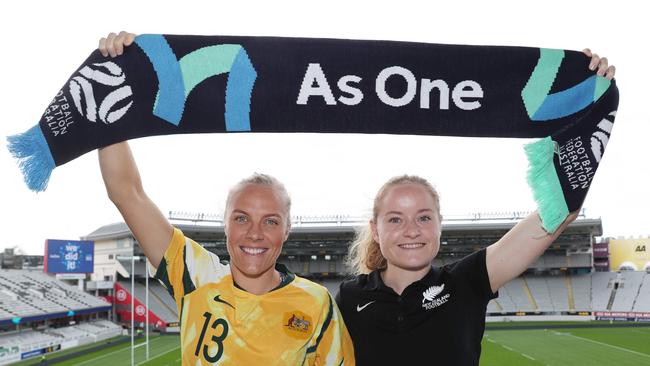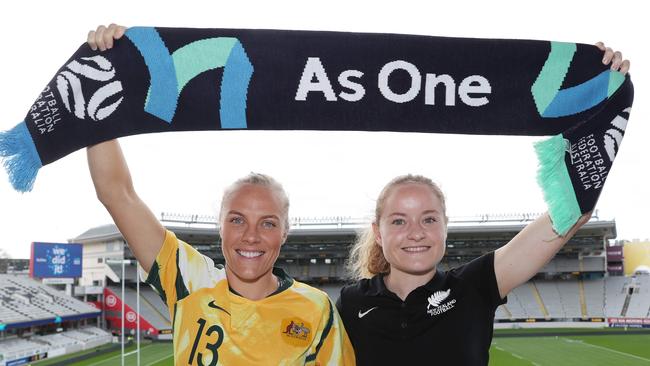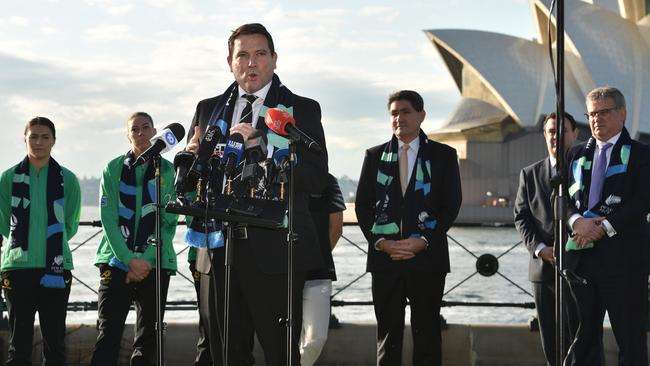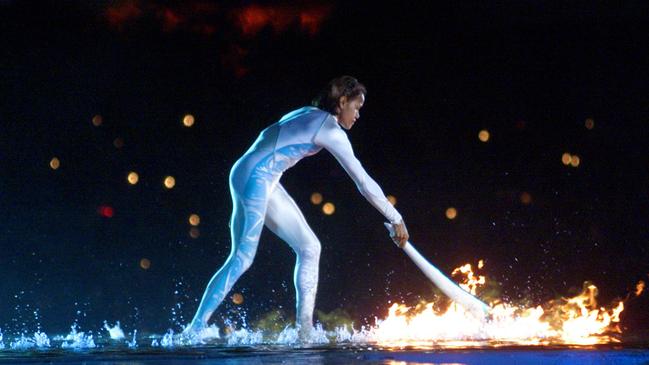Winning FIFA Women’s World Cup hosting rights is proof Australia is new sporting capital of the world
It used to be said that Australia’s prosperity was built on the sheep’s back, but in the uncertainty of the new millennium, it’s the business of sport that will help drive job growth and tourism.

Football
Don't miss out on the headlines from Football. Followed categories will be added to My News.
- Fantasy football: Why home World Cup changes everything
- ‘We did it’: Aussie Cup joy despite English betrayal
Even in the midst of the worst economic downturn since the Great Depression, there has never been a better time to be an Australian sports fan.
The stunning coup in winning the bid to co-host the 2023 FIFA Women’s World Cup with New Zealand is just the tip of the iceberg for an unprecedented golden era of jumbo-sized sports events that will create hundreds of thousands of new jobs and generate billions in revenue.
If there’s a silver lining to the coronavirus lockdown, it’s that the rest of the world has finally figured out what everyone in the Lucky Country already knew and anointed Australia as the home of major international sport for the post-COVID-19 generation.
Watch European Football with beIN SPORTS and ESPN on Kayo. New to Kayo? Get your 14-day free trial & start streaming instantly >

Sport is coming home.
Holding the world’s biggest sporting event for women is just the latest in a whole suite of colossal sports events heading our way including the men’s T20 World Cup, the world cross country championships, the women’s basketball World Cup, the road cycling world championships and the British and Irish Lions tour.
And there are even bigger ones still to come – including the 2027 Rugby World Cup, the 2027 Netball World Cup, the 2029 Rugby League World Cup and the ultimate jewel in the crown – the 2032 Summer Olympics.
“There’s no question the world looks at Australia as a sports loving country, capable of delivering the biggest events to the highest standard. We are viewed as a very safe pair of hands,” Australian Olympic Committee president John Coates said.
“The potential for this golden decade is extraordinary. We have the ability to supercharge sport, unite Australians and deliver a boost to the Australian economy with jobs and tourism. This decade can deliver a lasting legacy for sport, the economy and the community.”
Anyone old enough to remember the 2000 Olympics will recall that it was like someone had slipped Prozac into Sydney’s water supply because there’s no country on the planet that embraces big sporting events more than Australia.

But the feel-good factor hosting all these massive events when social distancing ends is really just the cherry on top of the economic bonuses that come with them.
It used to be said that Australia’s prosperity was built on the sheep’s back, but in the uncertainty of the new millennium, it’s the business of sport that will help drive job growth and tourism.
That’s why the federal government is going all in and backing Australia’s push to snap up all the giant events that attract the world’s eyeballs and dollars.
“If you think that the women’s football World Cup is worth hundreds of millions of dollars to the economy, and you start multiplying those things out and put the Olympics on the end of it a decade or so out, you’re potentially talking about billions of dollars of economic impact,” federal sports minister Richard Colbeck told News Corp Australia.
“When you combine them, it’s significant, and it feeds the huge sporting appetite that this country has because we do it exceptionally well.”
You know you must be doing something right when even FIFA’s notorious political deal-makers can’t prevent the biggest tournaments from going to the most deserving locations, which is sure to send a powerful message to other international sporting bodies, including World Rugby’s Eurocentric decision makers.

Australia did an incredible job hosting the 2003 World Cup and is looming as the odds-on favourite to stage the 2027 tournament with newly appointed Rugby Australia chairman Hamish McLennan pushing Australia’s case hard after last year’s tournament in Japan delivered eye-popping numbers, including almost a quarter of a million foreign visitors and $7.5 billion in economic impact.
“A successful Rugby World Cup bid would bring the third largest sporting event on the planet to Australia,” he told News Corp Australia.
“The result would be transformational for the game and deliver an extraordinary economic opportunity for the country. Everyone knows where they were when the Wallabies played England in the 2003 RWC Final in Sydney.”
Originally published as Winning FIFA Women’s World Cup hosting rights is proof Australia is new sporting capital of the world
